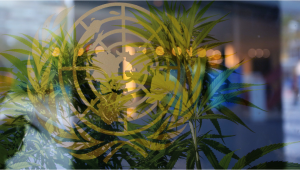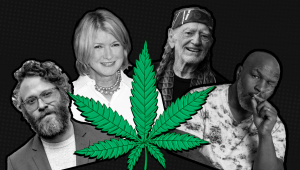The United Nations Recommends Banning Cannabis Advertising

Just like it’s been happening over the last couple of years with tobacco products, last Thursday the UN recommended a global ban on cannabis products advertising but made it clear that it’s just a recommendation and it’s up to the member nations to implement and enforce it. If implemented, the ban would make it so that cannabis advertisement follows public health interests and not business interest, and in order to be effective, would have to apply to all jurisdictions.
The Increasing Popularity Of Cannabis Products
The UN noted that cannabis and cannabis products have almost quadrupled in the United States and doubled in Europe in the last 20 years, and the potency of said products has increased exponentially while the percentage of people who see cannabis as harmful, especially teenagers, has decreased more than 40% over the last few decades; Also adding that there is a clear relation between long-term, heavy cannabis users and mental health disorders and the marketing of cannabis products with a high THC percentage, mainly through social media, can make this problem even worse.
How Would It Work?
The United Nations did not specify how the ban would work but mentioned that, if implemented, the countries could follow similar regulations to the WHO Framework Convention on Tobacco Control which is one of the most widely accepted treaties in history, with more than 168 signatories. Now, not every country that signed said treaty actually made it officially valid and this could be a problem because it’s not a guarantee that the ban would be effective because, as mentioned, it would have to apply worldwide in order to work.
Packaging Restrictions
Although there actually are restrictions to prevent cannabis companies from promoting cannabis products to kids, such as cartoon characters on the packaging, celebrities have started endorsing and coming out with their own cannabis products which makes them more appealing to those who could otherwise not be interested in trying cannabis products, especially kids, teenagers and young adults, which is the main concern.
Recently, The Wrigley Company (the candy company) launched a lawsuit against multiple companies that were selling cannabis-infused edibles and cannabis-related products with designs very similar to their products. One of the most popular brands which the candy giant took action against was TerpHogz, creator of the famous cannabis strain Zkittlez, which sold merch and other cannabis products. The lawsuit focused on intellectual property rights but also claimed that the action was taken to prevent children from consuming cannabis accidentally. This type of lawsuit is not uncommon, in recent years this type of action has been increasing and several companies such as Hershey’s, Mondelez, and Ferrara have all taken action in the US against cannabis companies using their image to sell cannabis products.
Fast Buds believes there should be laws in cannabis, including packaging regulations to prevent accidents involving minors, just like there are with every other industry but we do not condone banning or any other form of prohibition, seeing that it’s everyone’s right to grow and consume cannabis when done responsibly.











Comments